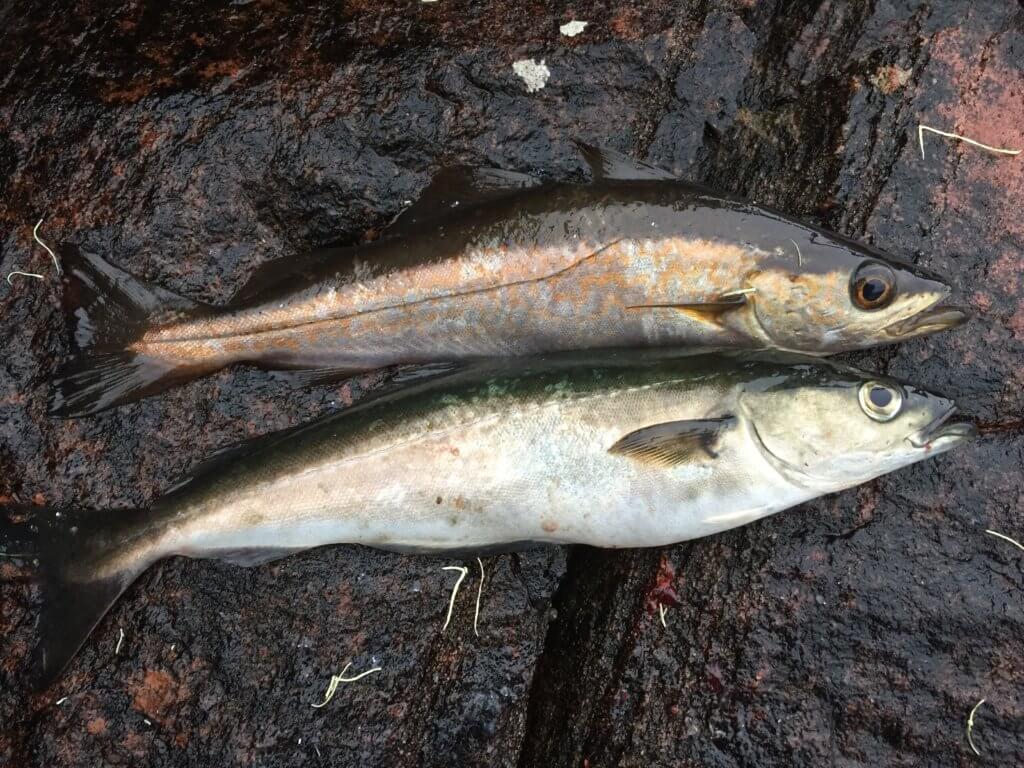
I’ll admit to being more than a little surprised the first time one of these two species emerged from the sea when I was Mackerel fishing. Both are members of the cod family and they are often confused with each other. As with many apparently tricky species pairs, as soon as a direct, side by side, comparison is possible the differences become obvious. In this case, the shape of the lateral line that runs along the length of the body is a key feature. The upper fish with the line that turns sharply upwards about halfway along the body is the Pollock.
The huge eyes immediately suggest they are predators of other fish. The really large individuals tend to keep to deep water well offshore but these smaller (single portion-sized) examples were caught close in to the rocks, no doubt using them, and the abundant kelp, as cover from which to launch their ambush attacks on smaller fish.
They were caught in Sutherland in the north-west of Scotland within a few minutes of each other in late autumn. The fishing was enlivened by Sea Eagles flying across every so often, and a small group of Harbour Porpoises passed so close to the rocks that, in the calm conditions, I could hear the noise of the breath taken as they surfaced (apparently, they are known as ‘Puffing pigs’ in parts of North America, presumably because of this sound, as well as their small size).
Both Pollock and Coalfish are nice enough to eat and they are increasingly fished commercially as alternatives to the more familiar, and enduringly popular, Cod and Haddock. If you eat a lot of fish fingers then you’ve probably already tried them. Coalfish are marketed as ‘Coley’ and one supermarket tried rebranding Pollock as ‘Colin’ to make it sound more appealing to consumers. I’m not sure why that would work though I had an uncle with the same name so perhaps that’s why it sounds a bit odd to me.
[registration_form]
Pollock [aka pollack] are known as lythe on the scottish east coast and coalfish known as saithe quite widely. Various nameS right round the UK. Coalfish were only used as lobster pot bait in my childhood [50s and 60s].
Oddly “Colin”is the French name for Hake.